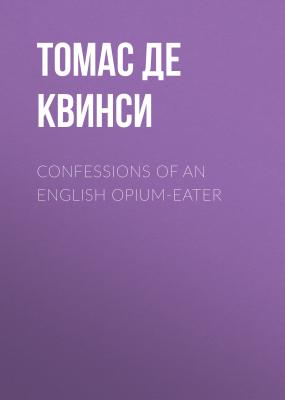who wished to drive me off the steps of houses where I was sitting. But one amongst them, the one on whose account I have at all introduced this subject—yet no! let me not class the, oh! noble-minded Ann—with that order of women. Let me find, if it be possible, some gentler name to designate the condition of her to whose bounty and compassion, ministering to my necessities when all the world had forsaken me, I owe it that I am at this time alive. For many weeks I had walked at nights with this poor friendless girl up and down Oxford Street, or had rested with her on steps and under the shelter of porticoes. She could not be so old as myself; she told me, indeed, that she had not completed her sixteenth year. By such questions as my interest about her prompted I had gradually drawn forth her simple history. Hers was a case of ordinary occurrence (as I have since had reason to think), and one in which, if London beneficence had better adapted its arrangements to meet it, the power of the law might oftener be interposed to protect and to avenge. But the stream of London charity flows in a channel which, though deep and mighty, is yet noiseless and underground; not obvious or readily accessible to poor houseless wanderers; and it cannot be denied that the outside air and framework of London society is harsh, cruel, and repulsive. In any case, however, I saw that part of her injuries might easily have been redressed, and I urged her often and earnestly to lay her complaint before a magistrate. Friendless as she was, I assured her that she would meet with immediate attention, and that English justice, which was no respecter of persons, would speedily and amply avenge her on the brutal ruffian who had plundered her little property. She promised me often that she would, but she delayed taking the steps I pointed out from time to time, for she was timid and dejected to a degree which showed how deeply sorrow had taken hold of her young heart; and perhaps she thought justly that the most upright judge and the most righteous tribunals could do nothing to repair her heaviest wrongs. Something, however, would perhaps have been done, for it had been settled between us at length, but unhappily on the very last time but one that I was ever to see her, that in a day or two we should go together before a magistrate, and that I should speak on her behalf. This little service it was destined, however, that I should never realise. Meantime, that which she rendered to me, and which was greater than I could ever have repaid her, was this:—One night, when we were pacing slowly along Oxford Street, and after a day when I had felt more than usually ill and faint, I requested her to turn off with me into Soho Square. Thither we went, and we sat down on the steps of a house, which to this hour I never pass without a pang of grief and an inner act of homage to the spirit of that unhappy girl, in memory of the noble action which she there performed. Suddenly, as we sate, I grew much worse. I had been leaning my head against her bosom, and all at once I sank from her arms and fell backwards on the steps. From the sensations I then had, I felt an inner conviction of the liveliest kind, that without some powerful and reviving stimulus I should either have died on the spot, or should at least have sunk to a point of exhaustion from which all reäscent under my friendless circumstances would soon have become hopeless. Then it was, at this crisis of my fate, that my poor orphan companion, who had herself met with little but injuries in this world, stretched out a saving hand to me. Uttering a cry of terror, but without a moment’s delay, she ran off into Oxford Street, and in less time than could be imagined returned to me with a glass of port wine and spices, that acted upon my empty stomach, which at that time would have rejected all solid food, with an instantaneous power of restoration; and for this glass the generous girl without a murmur paid out of her humble purse at a time—be it remembered!—when she had scarcely wherewithal to purchase the bare necessaries of life, and when she could have no reason to expect that I should ever be able to reimburse her.
Oh, youthful benefactress! how often in succeeding years, standing in solitary places, and thinking of thee with grief of heart and perfect love—how often have I wished that, as in ancient times, the curse of a father was believed to have a supernatural power, and to pursue its object with a fatal necessity of self-fulfilment; even so the benediction of a heart oppressed with gratitude might have a like prerogative, might have power given to it from above to chase, to haunt, to waylay, to overtake, to pursue thee into the central darkness of a London brothel, or (if it were possible) into the darkness of the grave, there to awaken thee with an authentic message of peace and forgiveness, and of final reconciliation!
